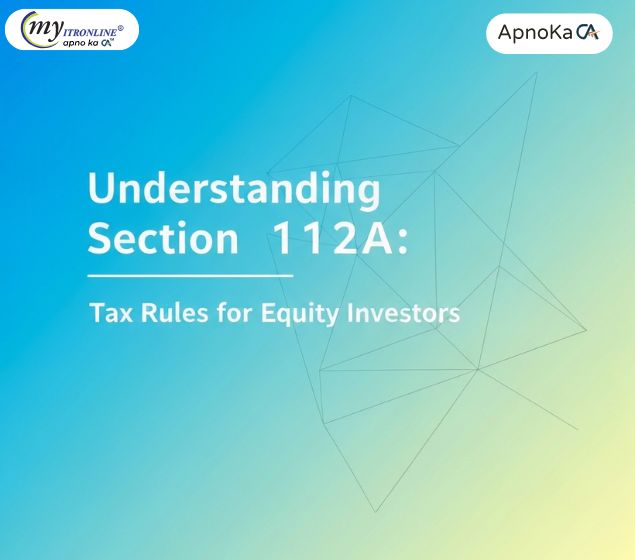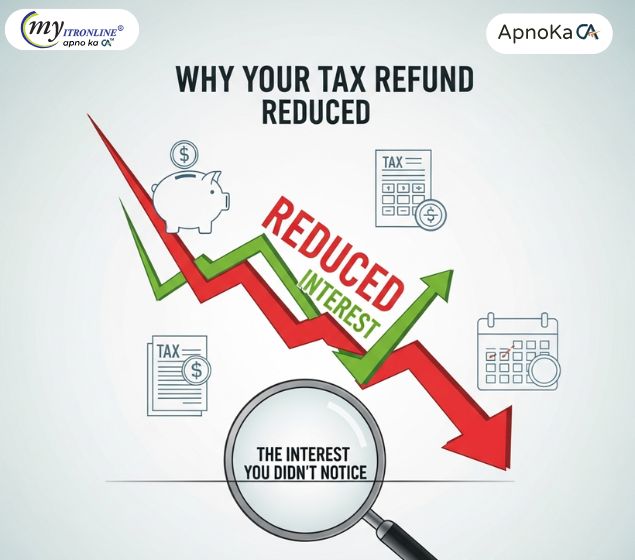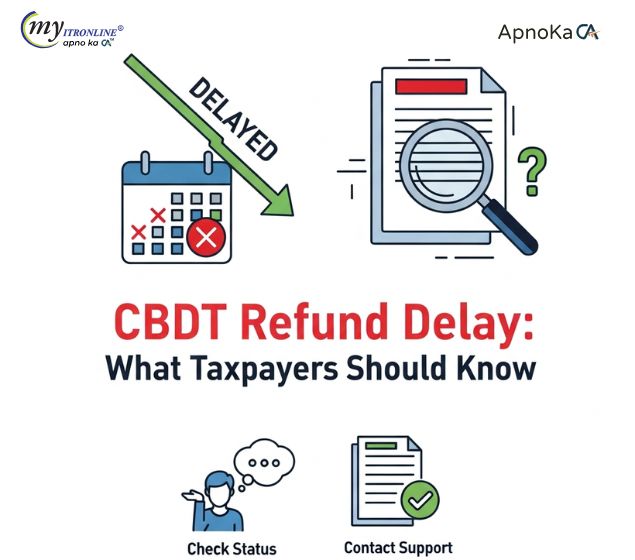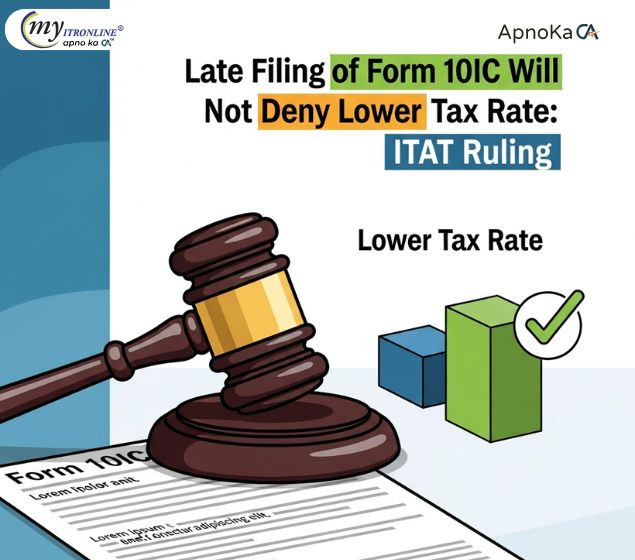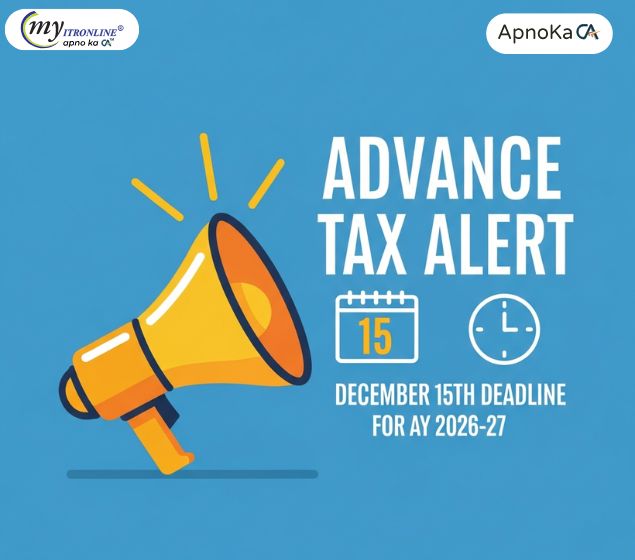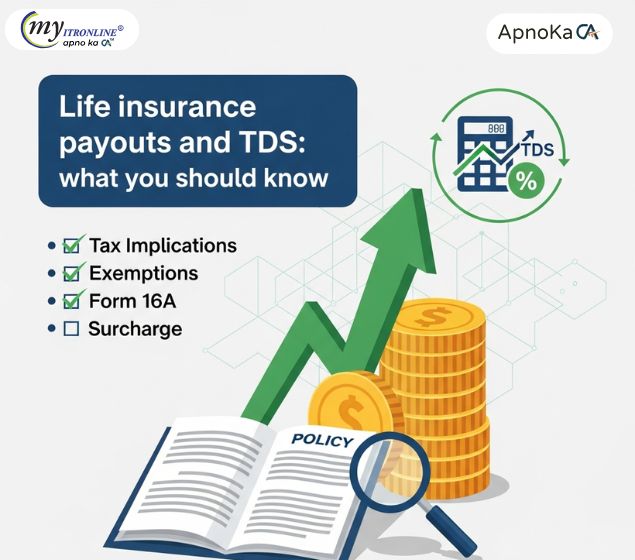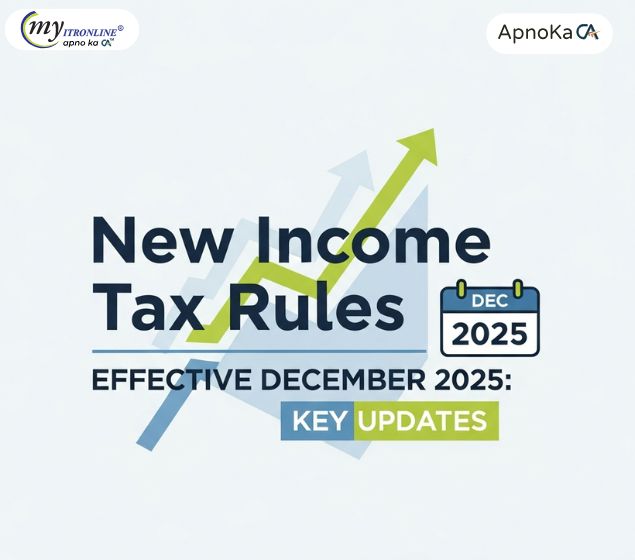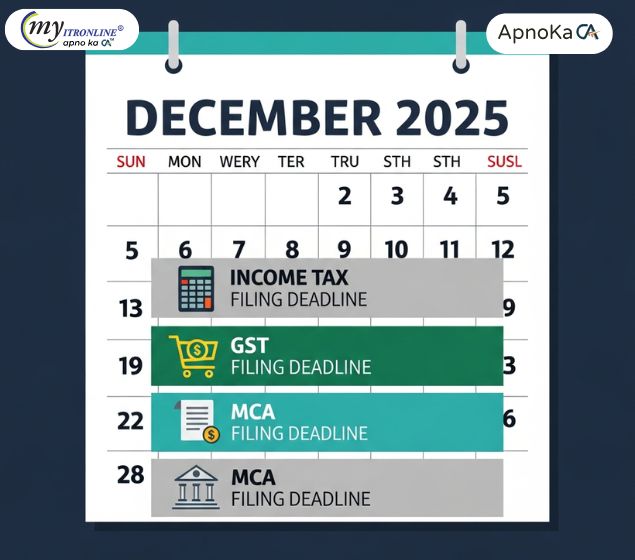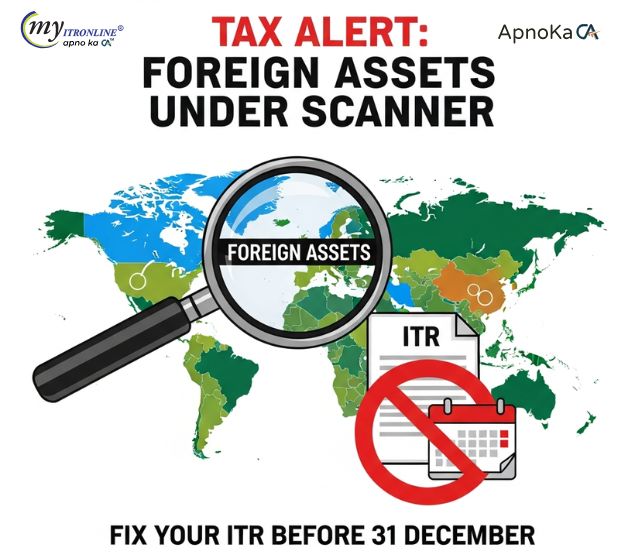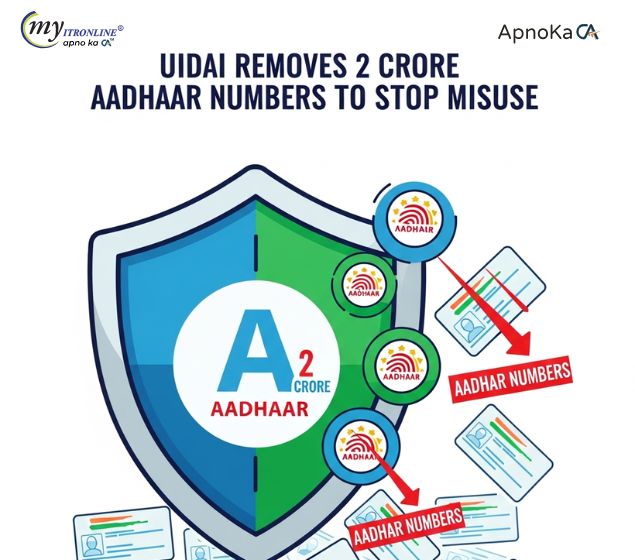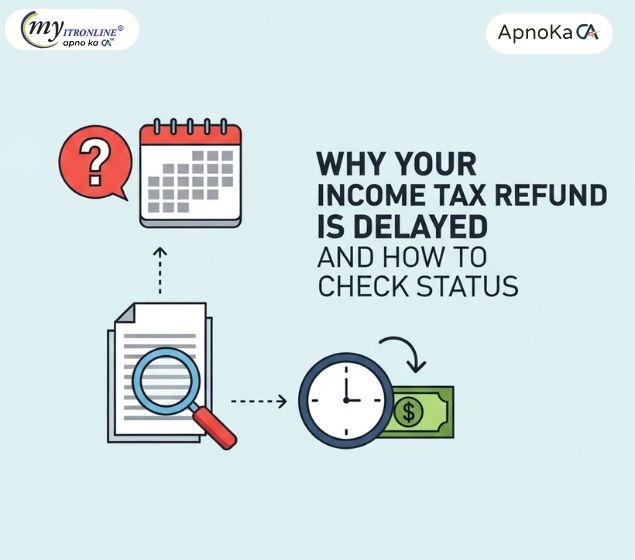Income Tax Return (ITR) Basics for 2025: What Every Indian Needs to Know
This guide explains Income Tax Returns (ITR) in India for AY 2025-26. It defines ITR, outlines the significant benefits of filing (like refunds, loan proof), details who must mandatorily file based on income thresholds (e.g., GTI > ₹3 Lakh in new regime) or specific high-value transactions (deposits > ₹1 Cr, foreign travel > ₹2 Lakh etc.), and clarifies exemptions, including the specific conditions for senior citizens over 75 under Section 194P.
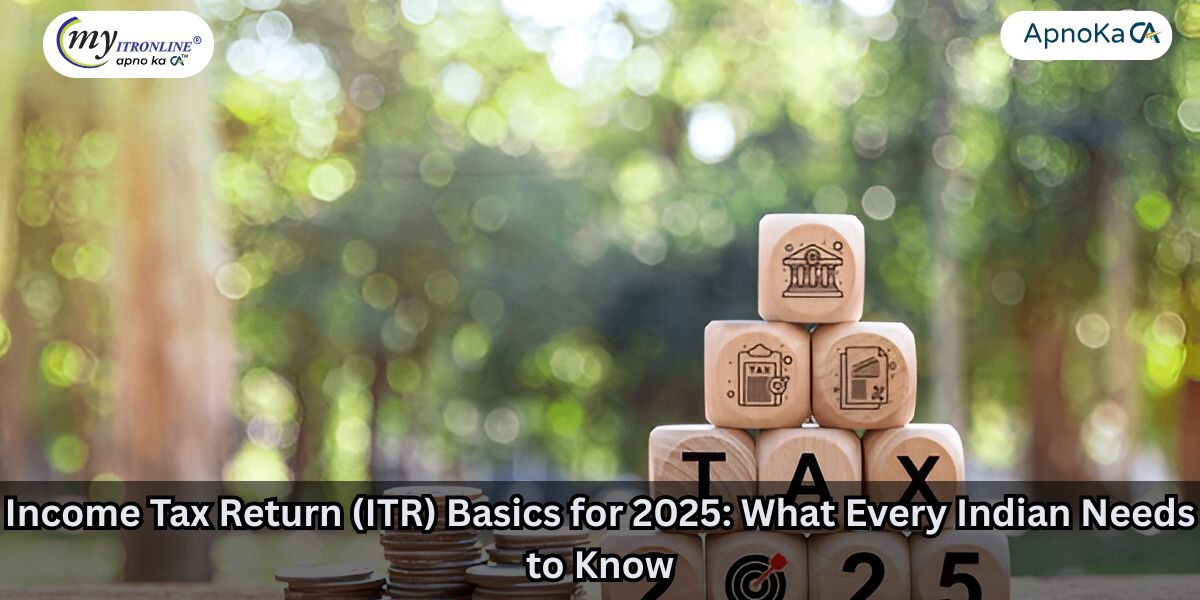
Understanding ITR: Your Definitive Guide to Income Tax Returns in India (2025)
Navigating the process of filing taxes can feel overwhelming, but grasping the essentials is important for all earning individuals and organizations in India. A key element of the Indian Income Tax framework is the Income Tax Return, or ITR. Regardless of whether you're a salaried worker, a business proprietor, or a freelancer, being informed about ITR is vital.
This guide will outline all you need to know about ITR as of April 2025, discussing what it is, who is required to file, the advantages, necessary conditions, and exemptions.
What is an ITR?
An Income Tax Return (ITR) is a designated form that taxpayers complete to disclose their income, deductions, and tax obligations to the Income Tax Department of India. It serves as a declaration of the income earned within a Financial Year (FY - from April 1st to March 31st) and the corresponding taxes paid.
The ITR forms are submitted for a designated Assessment Year (AY), which follows immediately after the Financial Year. For example, income received from April 1, 2024, to March 31, 2025 (FY 2024-25), will be evaluated and submitted in the Assessment Year 2025-26.
Various ITR forms exist (ITR-1 Sahaj, ITR-2, ITR-3, ITR-4 Sugam, etc.), and the appropriate form depends on the taxpayer's income sources and classification (individual, company, etc.).
Why is Filing an ITR Important? (Advantages of Filing)
Filing an ITR is not only a legal requirement for many; it also provides numerous benefits:
- Claiming Tax Refunds: If you have paid more tax than required (often through Tax Deducted at Source - TDS, Tax Collected at Source - TCS, or Advance Tax), filing an ITR is the only option to receive a refund from the Income Tax Department.
- Carrying Forward Losses: If you have experienced losses from business activities, professional services, capital gains, or real estate, you can carry those losses forward to future years to offset against future income, but only if you submit your ITR by the deadline.
- Proof of Income: Your ITR acts as official verification of your income. This is essential when seeking:
- Loans (Home, Vehicle, Personal)
- Visas for international travel
- Expensive insurance policies
- Avoiding Penalties and Legal Issues: Failing to file or submitting your ITR late when required can lead to penalties (under Section 234F), interest on outstanding taxes (Sections 234A, B, C), and potentially legal action.
- Quicker Loan/Credit Card Approvals: Financial institutions and banks frequently ask for recent ITRs (typically 2-3 years) as proof of financial reliability before sanctioning loans or credit card applications.
- Contributing to National Development: The taxes collected are utilized by the government for essential services like public infrastructure, defense, healthcare, and education. Accurate filing supports the nation’s progress.
- Required for Specific Transactions: You may need to provide ITR copies for significant investments or transactions.
Who Must File an ITR? (When is Filing Required?)
According to Section 139(1) of the Income Tax Act, 1961, certain individuals and entities are obliged to file an ITR, even if they have no tax liability or are entitled to a refund. It is MANDATORY to file an ITR in the following scenarios:
A. Income Surpasses Basic Exemption Threshold:
- If your Gross Total Income (GTI) - prior to any deductions under Chapter VI-A (such as Section 80C, 80D, etc.) - exceeds the basic exemption threshold applicable to you for the Financial Year.
- Basic Exemption Thresholds (FY 2024-25 / AY 2025-26):
- Default New Tax Regime: ₹3,00,000 (for all individuals regardless of age). (Note: Although individuals with taxable income up to ₹7 lakh are exempt from taxes due to the rebate under Sec 87A, it remains mandatory to file if GTI surpasses ₹3 lakh).
- Optional Old Tax Regime:
- Individuals under 60 years: ₹2,50,000
- Senior Citizens (60 to 80 years): ₹3,00,000
- Super Senior Citizens (80 years and above): ₹5,00,000
B. Specific High-Value Transactions/Criteria (Even if Income is Below Exemption Threshold):
Individuals and HUFs are required to file if they satisfy any of the following criteria during the Financial Year:
- High Electricity Usage: Total electricity bills paid exceeding ₹1 lakh combined.
- Large Bank Deposits:
- Deposited ₹1 crore or more collectively in one or more current accounts.
- Deposited ₹50 lakh or more cumulatively across one or more savings bank accounts.
- Considerable Foreign Travel Expenses: Incurred travel costs over ₹2 lakh for visits to a foreign country (for oneself or others).
- Significant Business Revenue: Overall sales, turnover, or gross receipts from business surpass ₹60 lakh.
- Considerable Professional Earnings: Gross receipts from a profession exceed ₹10 lakh.
- High TDS/TCS: Total Tax Deducted at Source (TDS) or Tax Collected at Source (TCS) is ₹25,000 or more (₹50,000 or more for resident senior citizens).
C. Other Compulsory Cases:
- Companies and Firms: All companies (both private and public) and firms (including Limited Liability Partnerships - LLPs) must submit an ITR, regardless of their income or losses.
- Seeking Refunds: If you intend to claim a tax refund.
- Carrying Over Losses: If you wish to carry over losses to subsequent years.
- Residents with Foreign Assets/Income: If you are a resident holding any asset (including financial interests) situated outside India or have signing authority on any account located outside India. Additionally, if you are a beneficiary of any asset located outside India.
- Charitable Trusts/Institutions: Trusts, political organizations, institutions, colleges, etc., claiming income tax exemption under relevant sections of the Act.
Who is Exempt from Filing ITR?
While filing requirements are broad, certain individuals are exempt:
- Individuals Below Exemption Threshold (with No Other Compulsory Conditions): If your Gross Total Income (GTI) is below the applicable basic exemption threshold, AND you do not meet any of the mandatory filing conditions specified earlier (like high deposits, foreign travel, high TDS/TCS, etc.), you typically aren’t required to file an ITR.
- Particular Senior Citizens (Section 194P): Resident Senior Citizens aged 75 years or older are exempt from filing ITR only if they fulfill ALL of the following criteria:
- Their only income sources are Pension and Interest received from the same designated bank where they receive their pension.
- They have submitted a declaration to that designated bank.
- The specified bank deducts the relevant income tax on their total income after accounting for deductions under Chapter VI-A and the rebate under 87A.
Conclusion:
Comprehending your ITR filing responsibilities is a fundamental part of financial compliance in India. Accurately and timely filing your Income Tax Return not only ensures adherence to the law and prevents penalties but also offers several advantages such as facilitating loan approvals, visa processing, and claiming refunds.
Keep in mind that the standard deadline for submitting ITR for individuals and non-audit situations for AY 2025-26 is expected to be July 31, 2025, while for taxpayers who need an audit, it is generally October 31, 2025 (pending official announcements).
Stay updated, evaluate your earnings and transactions against the required filing thresholds, and make sure you meet your tax obligations diligently.
FILING YOUR INCOME TAX RETURN F.Y 2024-25 (A.Y. 2025-2026) WITH MYITRONLINE
The income tax filing deadline is right around the corner. If you haven’t filed yet, do it today with Myitronline! Avoid last minute rush and file your tax return today on MYITRONLINE in Just 5 mins.(www.myitronline.com)
If you are looking for eCA assistance to file your income tax return/ GST, you can opt for MYITRONLINE eCA assisted plan starting
Upload Salary Individual Form-16
If you have any questions with filing your tax return, please reply to this mail. info@myitronline.com OR call 9971055886,8130309886.
Note-All the aforementioned information in the article is taken from authentic resources and has been published after moderation. Any change in the information other than fact must be believed as a human error. For queries mail us at marketing@myitronline.com
Krishna Gopal Varshney
An editor at apnokacaKrishna Gopal Varshney, Founder & CEO of Myitronline Global Services Private Limited at Delhi. A dedicated and tireless Expert Service Provider for the clients seeking tax filing assistance and all other essential requirements associated with Business/Professional establishment. Connect to us and let us give the Best Support to make you a Success. Visit our website for latest Business News and IT Updates.
Leave a reply
Your email address will not be published. Required fields are marked *Share this article
Krishna Gopal Varshney, Founder & CEO of Myitronline Global Services Private Limited at Delhi. A dedicated and tireless Expert Service Provider for the clients seeking tax filing assistance and all other essential requirements associated with Business/Professional establishment. Connect to us and let us give the Best Support to make you a Success. Visit our website for latest Business News and IT Updates.
View articles








